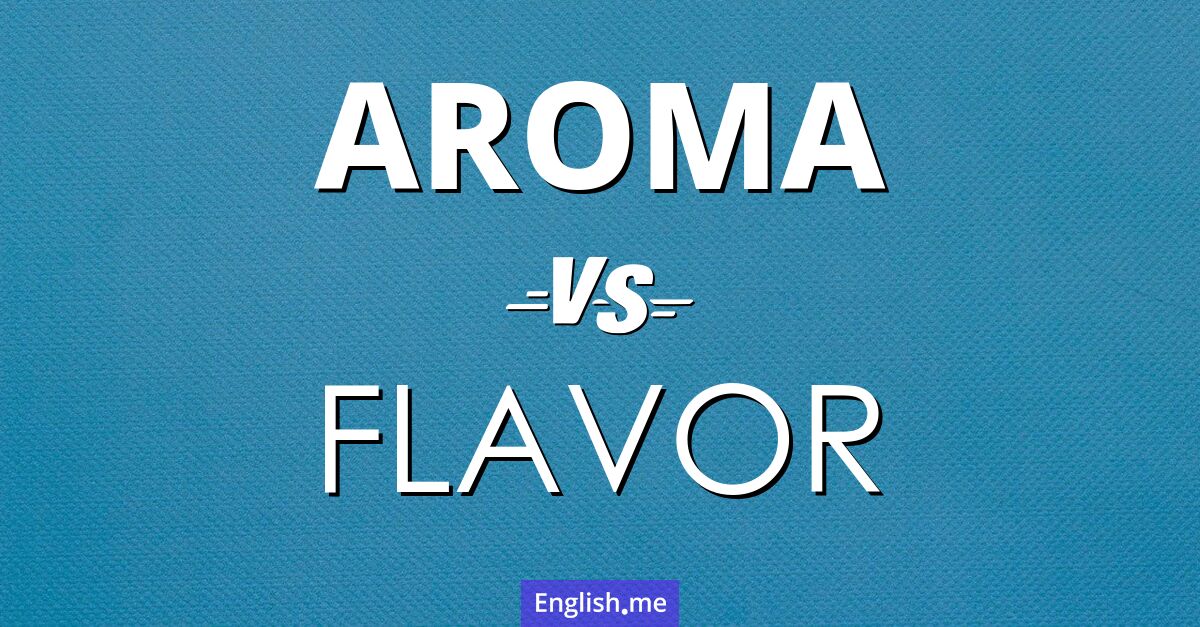Savoring the nuance: "aroma" vs. "flavor"
Reviewed and edited by  Lloyd Cooper 05/10/2024, 04:26
Lloyd Cooper 05/10/2024, 04:26
English.me team member

 What is similar?
What is similar?
Both "aroma" and "flavor" are terms used to describe sensory experiences related to food and drinks. They often overlap in culinary contexts and both contribute to the overall perception of taste.
 What is different?
What is different?
Aroma specifically refers to the smell of something, typically food or drink, and can be detected by the nose. Flavor, on the other hand, is a broader concept that includes taste and aroma, typically experienced through the combined senses of taste and smell.
 Which one is more common?
Which one is more common?

 Examples of usage
Examples of usage
Aroma- The aroma of freshly baked bread filled the kitchen.
- She loved the distinctive aroma of roasted coffee beans in the morning.
- The soup had a rich, savory flavor that everyone enjoyed.
- He added herbs and spices to enhance the flavor of the dish.

 English
English español
español française
française italiano
italiano deutsche
deutsche 日本語
日本語 polski
polski česky
česky svenska
svenska Türkçe
Türkçe Nederlands
Nederlands